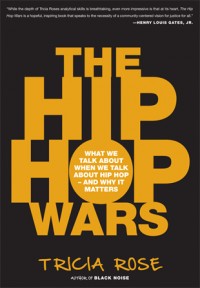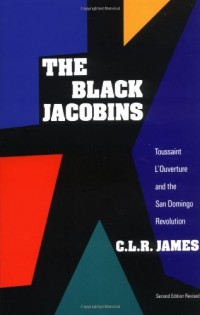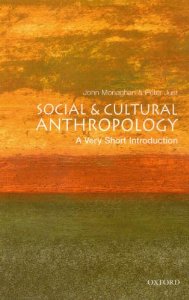SPOHP offers a track with the UF History Department for an academic internship program, combined Bachelor’s and Master’s Degree in oral history, and works with different departments on campus to provide students with oral history learning opportunities, regularly coordinating classes that draw from our archives and community resources.
 Oral History Academic Internship
Oral History Academic Internship
SPOHP offers semester-long academic internships, available to graduate and undergraduate students for 3 credit hours, which serve as an introduction to the field of oral history.
The program is designed to provide students with hands-on experience in the areas of research, interviewing, processing, technology, and educational outreach.
Find out more: Fall 2018 Internship Program
4+1 BA/MA Oral History Degree
The UF History Department (opens in new tab) and SPOHP announce a new combined Bachelor’s and Master’s Degree Program (opens in new tab) in oral history, now open to students for admittance. Open to students working in any field of modern history, the program is designed to train students in oral history practice to make history accessible to a broad audience and connect scholars and departments to their local communities.
The 4+1 program’s final MA non-thesis project will be a portfolio designed to find innovative and exciting ways to make oral history accessible to the public. The core element of the portfolio is the creation of a podcast based on oral history materials that introduces the public to a particular moment in the local past and connects that project to the collection at the SPOHP.
Methods and techniques training is at the heart of this BA/MA program. Students applying to 4+1 must be history majors and currently juniors (60-89.9 credit hours) with a 3.25 GPA. Students must take the GRE, and submit an application to the History Department. Interested students, read more (opens in new tab) at the History Department website and e-mail (Dr. Elizabeth Dale (opens in new tab)) for more information.
See an introductory video (opens in new tab) to the program.
In Classrooms and At Field Sites: Undergraduates Using Oral History at the University of Florida
- Dr. Ortiz is teaching an intro to oral history course…
- Civil Rights Attorney John Due Awarded an Honorary Doctorate in Humane Letters
- Scott Camil on “Winter Warrior”
- New Spring Internship on the Black Freedom Struggle in Florida
- SPOHP Contributes Travel Support for OHA Conference Attendees from Hurricane-Affected Areas
- Home Away from Home: Remembering Refugees in Florida
- Check Out Our Students’ Reflections On Our Annual Mississippi Freedom Trip
- Try To Keep Up With Us! Our Summer Newsletter is Here!
- Commemorating Black and Brown Wednesday
- SPOHP Scholars present at National Civil Rights Conference
- SPOHP featured in “American Tales” article in CLAS’s Ytori Magazine
- Intersections Grant Awarded!
- Take a Look at Our Veteran’s History Project
- “Puerto Ricans find new home in Alachua County”
- Our Summer B Intro to Oral History Course Will Focus on FL Farmworker History
- From Colored to Black: The Stories of North Central Florida
- Tale of Two Houses: A Dialogue on Black and Latinx History at UF
- Trinidad Study Abroad Registration Deadline Extended – March 30
- “Voices of Dreamers” Students fundraising for SOHA Conference in LA
- “Voices From The March” Students Fundraise to Perform at SOHA Conference
- Applications Open for our Fall 2018 Internship!
- Safe Spaces: Episode 3 – “Miracle On 13th Street”
- Art of Aging
- Now on UFDC: “Keep Your Trash” (1971) First Documentary on Memphis Sanitation Worker’s Strike
- NAFTA’s Long Shadow: Where immigration and economic policy meet
- Laura Dixie: Remembering a ‘Mother of the Movement’
- Our Year-End Journal is Available Now
- Telling Gainesville: A Film Screening
- Voices from the March: A Multi-Media Experience
- Black and Latinx History of the Gator Nation: Spring 2018 Course
- Spring 2018 Internship: The Jacob Lawrence Project
- SPOHP is Seeking Out Undocumented UF Students for an Oral History Project
- Mississippi Freedom Fieldwork Panel Sept. 27
- SPOHP Open House Scheduled for Sept. 29
- SPOHP Intern at the Defend DACA/Save TPS Rally at Orlando City Hall
- MCDA’s Anti-Racism Education Week
- SPOHP is Sponsoring this Years Latino Film Festival!
- 2017 Virginia Fieldwork Trip Applications Are Open!
- Jeffrey Pufahl To Transform Interviews from the Women’s March on Washington Trip into a Play
- SPOHP-ed Written by Mississippi Freedom Trip Researchers Published in the Gainesville Sun
- Welcoming Gainesville Fall 2017 Civic Engagement Internship
- SPOHP FQH Project Documents DC’s Pride Weekend
- SPOHP Sponsoring the Jacob Lawrence Workshop
- 50th Anniversary of the Attack on the USS Liberty
- The Samuel Proctor Oral History Program’s Summer 2017 Newsletter
- Spring 2017 Internship Class Podcasts: Civic Engagement
- Former SPOHP Director Julian M. Pleasants Releases New Book
- Safe Spaces: Episode 2 – “Friends with Weapons”
- Fall 2017 Internship Applications Are Now Available
- Big News: We’re On the Air!
- Chicano Poet Matt Sedillo Brown Bag and Workshop
- Michael T. Barry Jr.: Nation needs more debates
- Line Wraps Around Theater in Tacoma, WA for “Love and Solidarity”
- Public Screening of “Gator Tales”
- Gainesville 8: Episode 3 (Final Cut)
- Safe Spaces: Episode 1 – No Place Like Home
- Fall 2016 Internship Class Podcasts: Sport at the University of Florida
- Gainesville 8: Episode 2
- Gainesville 8: Episode 1
- Spring 2016 Internship Class Podcasts: Florida Craft Brew
- Feb. 17, Award Reception for Eastside American History Teacher David Jones
- Eastside High School Teacher Wins Oral History Award, WUFT
- Fall 2015 Internship Class Podcasts (coordinated by Kyle Bridge and Meagan Frenzer): International Brotherhood of Electrical Workers
- Fieldwork in Folklore Research Trip Returns to Virginia in October 2015
- SPOHP Prepares for October Oral History Association Annual Meeting in Tampa, FL
- Retired Faculty of UF Oral History Project Tells the Story of UF
- Congratulations to the Spring 2015 SPOHP internship class!
- Congratulations to SPOHP University Scholars for 2014-2015!
- Congratulations to Allison Mitchell, SPOHP’s Student Volunteer of the Quarter for Fall 2014!
- Documenting the Ethnic Studies Struggle through Oral History Field Work Trip: A Collaboration between Prescott College and the University of Florida
- March 5 Tucson Ethnic Studies Research Trip Panel Event: “Documenting the Ethnic Studies Struggles through Oral History” at Prescott College
- Spring 2015 Internship Class Podcasts (coordinated by Jessica Taylor and Kyle Bridge): Virginia Fieldwork in Folklore, Appalachian Social Change Project, Community organizing, and more
- UF School of Theatre and Dance Presents “Gator Tales” in February 2015 with Alachua County African American History Project
- University Gallery at 50: The Roy Craven Legacy, Gallery Founder and Longest Standing Director
- “Remembering My Country” with Fall 2014 Students of SPN 3948 Service Learning
- College of Journalism and Communications Students Share Oral Histories with Visual Storytelling Web Applications
- Fall 2014 Internship Class Podcasts (coordinated by Jessica Taylor and Matthew Simmons): Veterans History
- Podcasts Storifyed for Fall 2014 Visual Journalism Class
University of Florida Courses: Summer 2016
AMH 3593: Intro Oral History with Ph.D. Candidate Matthew Simmons (Flyer (PDF))
SPOHP’s Summer B 2016 course will explore Florida’s unique agricultural history, focusing on the experiences of farmworkers in Florida’s fields. These oftentimes forgotten African American, Latino, and Haitian men and women have grown and harvested the fruits and vegetables that Americans have consumed for decades.
The project will contribute to an already existing archive of Florida farmworkers. Students will conduct oral history interviews with current and former farmworkers. Final projects will involve creating a podcast of their interview, to be posted online for anyone to listen and learn about the men and women who have fed America. For more information, contact Matt Simmons at mattfsimmons@ufl.edu.
University of Florida Courses: Summer 2015
AMH 3931: Readings in Oral History with SPOHP Graduate Coordinator Jessica Taylor (Syllabus (PDF))
Oral history is one of the newest tools available to practitioners of one of the world’s oldest academic disciplines. A product of twentieth-century technological innovation, oral historians archive, analyze and disseminate stories from public figures like Bob Graham and lesser-known labor activists like Marie Francois. In this class, we will discuss the capabilities, controversies, and methodologies of this developing field. What are the ethical ways to collect oral histories? What can young scholars contribute to the field of oral history? What are their responsibilities to their host communities? Students who complete the class will understand how to conduct an oral history project and the basic theories behind oral history which make it distinct and crucial to our understanding of the past.
University of Florida Courses: Spring and Summer 2014
AMH 3931: Introduction to Oral History with Ph.D. Candidate and SPOHP Graduate Coordinator Alumni Allen Kent (Course Description (opens in new tab))
While many still consider the academic study of history to revolve around archival materials, letters, newspapers, and other written records, the practice of oral history has steadily gained attention and practical use amongst historians. Recording oral testimonies allows a new window into the past, one that provides insight about historical time periods through the events of a person’s life story. By learning about someone’s trials and triumphs, interviewers are able to better understand past eras and movements through the eyes of an individual who experienced them first hand. Students taking this course will learn about the theories of oral history while putting those theories into practice through interviews, transcriptions, and project presentations. The course will revolve around readings, audio/video clips, and discussions, in addition to field work about a given topic. Students completing the class will enhance their skills in interviewing, transcribing, editing, public speaking, community involvement, and organization.
 AFA/ANT 3930: Sexual Politics of Hip Hop with AAHP Graduate Coordinator Justin Hosbey (Syllabus (PDF) (opens in new tab)
AFA/ANT 3930: Sexual Politics of Hip Hop with AAHP Graduate Coordinator Justin Hosbey (Syllabus (PDF) (opens in new tab)
For more than 30 years, Hip Hop has been one of the most significant cultural identifiers for youth in the United States. Through a close exmaination of critical feminist and queer theory, this course explores the cultural and political implications of hip hop music and culture-specifically its impact on Black sexual politics and gender performance. Also important to this course is an exploration of the ways that Hip Hop projects images of the black body across national and global scales. The task of this course is to foster a critical discussion about the implications of these imagines, in addition to analyzing how these projectsion fo the black imago are interpreted and refracted globally.

AMH3931: Africans in World History with SPOHP Director, Paul Ortiz (Syllabus (PDF) (opens in new tab))
This course of study explores the centrality of Africa to modern world history by studying revolutions & freedom movements against slavery & colonialism in the African Diaspora from the 18th century to present with a special emphasis placed on the development of democratic ideologies among African-descent peoples in the Americas and their connections to broader revolutionary trends in the Latin America, Africa, the US, Europe & Asia.
The course will examine anti-slavery, anti-colonial, and revolutionary movements in the African Diaspora from the 18th century to the present, with a focus on the Americas. It will explore connections that people and groups made between movements for black emancipation in the Americas with African freedom struggles and post-colonialism. Students will read classic works by Aimé Césaire, Wole Soyinka, W.E.B. Du Bois, C.L.R. James, Amy Jacques Garvey, Earl Lovelace, Frantz Fanon, and others. Themes will include: Pan-Africanism and the origins of Diaspora studies; trauma and collective memory, literary traditions; culture, self-determination and democracy; dynamics of racial oppression; political debates within Black communities; gender and class in protest movements, popular arts, the search for home, and slavery reparations. Using oral testimonies, novels, music, poetry, film, and other types of media, the course will explore the creative reconfiguration of Black identities, politics, and cultures in a dynamic and diverse Diaspora.
 ANT2410 (x2447) Introduction to Cultural Anthropology with AAHP Graduate Coordinator Ryan Morini
ANT2410 (x2447) Introduction to Cultural Anthropology with AAHP Graduate Coordinator Ryan Morini
This course is an introduction to the field of cultural anthropology, which is one of the four subfields of anthropology more broadly (the others are archaeology, linguistic anthropology, and biological anthropology). Our primary focus will be on the American tradition of anthropology, though other anthropological traditions have arise all over the globe. At risk of oversimplification, American cultural anthropology arose through two basic efforts: the first was a U.S. governmental interest in gathering information about the natives of the Americas and elsewhere; the second was a scholarly interest in understanding and identifying the realities of human nature. The tensions within and between these two efforts have left anthropology with a legacy of being both scientific and humanitistic, quantitative and qualitative, a force for liberation and a tool for oppression.
University of Florida Courses: Fall 2013
AFA 4931, AFS 4935, ANT 4930: Pan-Africanism with AAHP Graduate Coordinator Justin Dunnavant (Syllabus (PDF))
Broadly defining Pan-Africanism as a political and cultural movement as well as an ideology, this course will trace the intellectual genealogy of Pan-African thought into the 20th century. Geographically, we will focus heavily on Pan-Africanism in the United States, England, Africa, and the Caribbean and briefly touch on Pan-Africanism in Latin America and Asia. In addition to the concept of Pan-Africanism, we will explore the related themes of Black Nationalism, Ethiopianism, and Negritude. Lectures will be supplemented with documentary films, recorded speeches, and other multimedia sources.
AMH 3500: American Labor History with SPOHP Director, Dr. Paul Ortiz (Syllabus (PDF) (opens in new tab))
Emphasizing the history of America’s working class people, this course addresses such issues as working class consciousness, theories of organized labor, methods of organization, and class relationships. AMH 3500 explores the centrality of labor history as well as working class cultures and struggles in the development of the United States, from the colonial period to the present. Emphasis is placed upon the diverse cultures and ideologies of working people as well as their efforts to organize and create free and independent labor organizations including trade unions, labor parties, and mutual aid societies.
University of Florida Courses: Summer 2013
AMH 3931: Introduction to Oral History with SPOHP Graduate Coordinator Erin Conlin
In this introduction to oral history course, students focused on the community-based component of oral history and conducted interviews through the Farmworker Association of Florida (FWAF) (opens in new tab) to get a firsthand perspective on Florida’s farming history. To gather the interviews, the class traveled to Apopka, Florida during the six-week course and listened to stories from African American, Haitian, and Latino farmworkers. At the end of the course, students transcribed their interviews and created digital podcasts. The podcasts identified a central theme from the interviews by mixing student narrations with interviewees’ memories and stories to articulate the topic. Students completed the class with a foundational understanding of oral history skills, as well as historical context of the contemporary issue of U.S. labor and immigration policy.
For additional information, contact SPOHP, call the offices at (352) 392-7168, and connect with us online today.